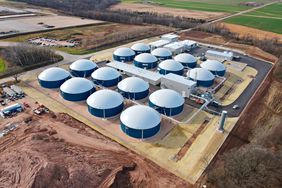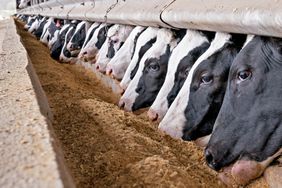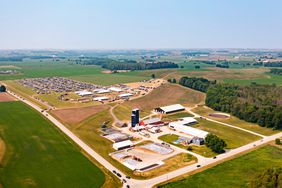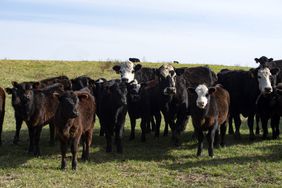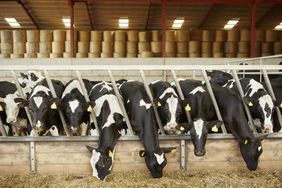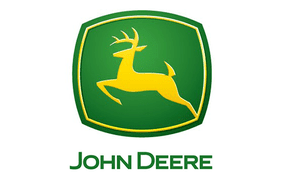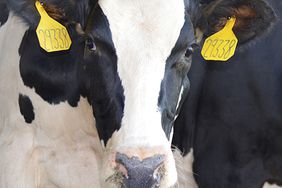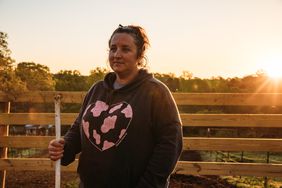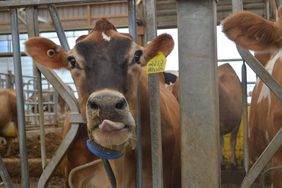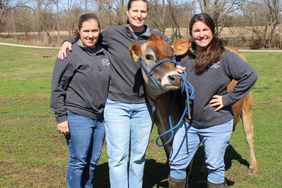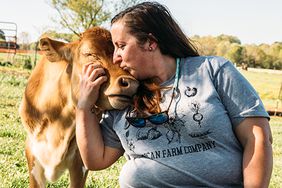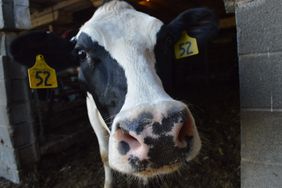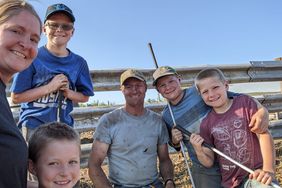:max_bytes(150000):strip_icc()/Redden20portrait20hue-2-2000-2b41211ea88b4db19548d201c678ef4a.jpg)
Although Derek and Carrie Redden did not grow up on a farm, the Minnesota couple was convinced it was a path the two wanted to pursue after taking the Land Stewardship Project's Farm Beginnings class.
At the time, the Reddens were hobby farmers, raising a few beef cows and chickens. They were also becoming more interested in where their food came from, how it was produced, and how they could play a larger role in agriculture.
"It was encouraging to see that there were people farming who didn't grow up on a farm. They may have been doing it a little differently, but they were doing it," says Carrie Redden. "It inspired us to pursue our own farming dream."
Not long after, the couple began making plans to build Twelve Tails Family Farm, a certified organic dairy. Today, the Reddens produce organic milk on a pasture-based farm in Stevens County, Minnesota.
SF: Tell me about the dairy where you farm.
CR: In 2013, we were presented with an opportunity to move to a 320-acre farm that had been in Derek's family for over 100 years. His grandma was ready to move to town, and no one else in the family had any interest in farming. Derek and I wanted it to stay in the family, so we decided we were going to be the next generation to work the land.
We thought of the farm as a blank slate because there wasn't much infrastructure. We knew we wanted to work with live-stock. We also knew an organic dairy had the revenue-generating potential so at least one of us could be a full-time farmer. In 2015, we started converting the land to be certified organic, a three-year process. We planted 115 acres into permanent vegetative cover for grazing. We use perennial crops when we can and then use the animals to harvest the crop and distribute fertilizer. Our current pasture mix has seven varieties of seed including alfalfa, orchardgrass, tall fescue, and meadow fescue.
The land was certified organic in May 2018. Because it's a one-year process to transition dairy animals to organic milk production, we purchased heifers in 2017 and started breeding them. We also started construction on a milking facility and built a Dairymaster Swing 10 parlor from the ground up.
We milked our first cows in June 2018 and have a contract with Organic Valley. With premiums, we were paid $31.57 per CWT for October 2022 milk. December, January, and February will be $3 per CWT higher.
SF: Tell me about your rotational grazing.
CR: From 2015 to 2018, we built fences and installed watering systems on the pastures. We have 10 pastures with permanent fences that range in size from 7 to 15 acres. We can divide each into smaller paddocks with temporary fencing to easily adjust our stocking density. We were able to take advantage of the EQIP program to help with start-up costs.
Our average grazing session is 175 days annually, and we move our milking cows to new paddocks daily. During the grazing season (May to October), their diet is almost 100% pasture. They also receive mineral supplements and some ground corn. From November to April, they get hay, as well as mineral supplements, and a little ground corn.
SF: What breed do you milk?
CR: We milk 35 crossbred cows. The breeds represented are Holstein, Jersey, Montbéliarde, Normandy, and Viking Red.
We recently started breed-ing with a Fleckvieh bull. It is a dual-purpose breed we are going to raise for both milk and meat production. We're excited to see the benefits we believe will come from this line, especially in raising better steers to finish for meat.
We try to keep input costs low, so we are always looking for animals that do well in a grazing system. We do not make decisions about our herd based on maximum production per animal. We want an animal that is efficient, has good overall health, and is going to do well outside.
Background
Derek and Carrie Redden have two children, Dorothy (11) and Elvin (9). While the Reddens admit life as dairy farmers has its challenges, they find the work immeasurably rewarding. "To care for the land and animals has such an intrinsic value for us," Carrie says. "It's also an amazing way to raise a family. The experiences the four of us have had working together — even during the hard times — has shown us how resilient we are."
